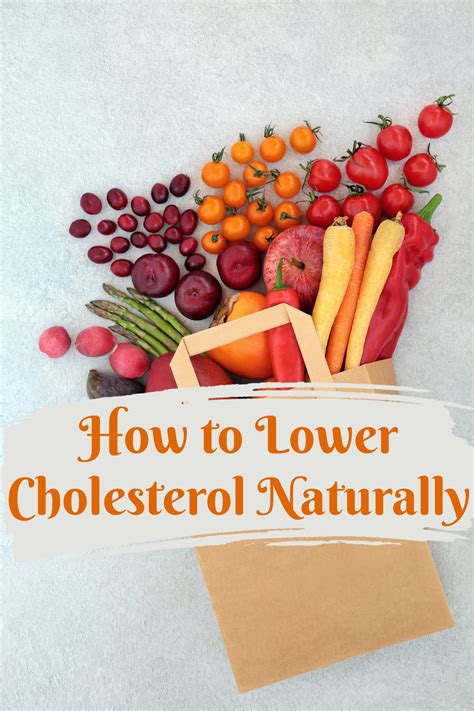How To Lower Cholesterol Naturally: A Comprehensive Guide
High cholesterol is a prevalent health concern, but thankfully, you can take proactive steps to lower it naturally. This comprehensive guide explores effective strategies to improve your cholesterol levels without relying solely on medication. We'll delve into dietary changes, lifestyle adjustments, and supplementary options to help you achieve optimal heart health.
Understand Your Cholesterol
Before diving into solutions, it's crucial to understand what cholesterol is and why it matters. Cholesterol is a waxy substance found in your blood. While some cholesterol is necessary for bodily functions, high levels, particularly LDL ("bad") cholesterol, can increase your risk of heart disease and stroke. HDL ("good") cholesterol, conversely, helps remove LDL cholesterol from your arteries.
The Importance of HDL and LDL Cholesterol
-
LDL (Low-Density Lipoprotein) Cholesterol: High levels of LDL cholesterol contribute to plaque buildup in your arteries, leading to atherosclerosis. This process narrows your arteries, restricting blood flow and increasing your risk of heart attack and stroke. Lowering LDL cholesterol is paramount.
-
HDL (High-Density Lipoprotein) Cholesterol: HDL cholesterol acts as a scavenger, removing LDL cholesterol from your arteries and transporting it to your liver for processing and elimination. Higher HDL levels are beneficial for heart health.
Natural Ways to Lower Cholesterol
Now, let's explore proven natural methods to improve your cholesterol profile:
1. Dietary Changes: The Cornerstone of Cholesterol Management
Your diet plays a pivotal role in managing cholesterol levels. Focus on these key changes:
-
Reduce Saturated and Trans Fats: These fats significantly raise LDL cholesterol. Limit consumption of red meat, processed foods, fried foods, and baked goods made with solid fats.
-
Increase Soluble Fiber: Soluble fiber binds to cholesterol in your digestive tract, preventing its absorption into your bloodstream. Excellent sources include oats, barley, apples, beans, and lentils. Consider incorporating these into your daily meals.
-
Embrace Omega-3 Fatty Acids: These healthy fats, found in fatty fish like salmon, mackerel, and tuna, can help lower triglycerides and raise HDL cholesterol. If you don't eat fish regularly, consider a high-quality omega-3 supplement.
-
Increase Plant Sterols and Stanols: These plant compounds interfere with cholesterol absorption in the gut, effectively lowering LDL cholesterol. You can find them in many fortified foods, like some yogurts and margarines.
-
Limit Dietary Cholesterol: While dietary cholesterol doesn't have as significant an impact as saturated and trans fats, it's still wise to moderate your intake of cholesterol-rich foods like egg yolks and organ meats.
2. Lifestyle Modifications: Beyond Diet
Dietary changes alone aren't enough. Incorporate these lifestyle adjustments:
-
Regular Exercise: Aim for at least 30 minutes of moderate-intensity exercise most days of the week. Physical activity helps raise HDL cholesterol and lower LDL cholesterol.
-
Weight Management: Maintaining a healthy weight significantly impacts cholesterol levels. Losing even a small amount of weight can make a noticeable difference.
-
Stress Reduction: Chronic stress can negatively affect cholesterol levels. Practice stress-reducing techniques like yoga, meditation, or deep breathing exercises.
-
Quit Smoking: Smoking damages blood vessels and increases LDL cholesterol. Quitting smoking is crucial for overall cardiovascular health.
3. Supplements: Supporting Your Efforts
While supplements can be helpful, they shouldn't replace a healthy diet and lifestyle. Consult your doctor before taking any supplements:
-
Plant Sterols/Stanols: As mentioned earlier, these are effective in lowering LDL cholesterol.
-
Psyllium Husk: This soluble fiber supplement can help lower cholesterol and improve digestive health.
-
Red Yeast Rice: This supplement contains monacolin K, which has a similar effect to statin medications. However, it's crucial to discuss this with your doctor due to potential interactions with other medications.
Monitoring Your Progress
Regularly monitoring your cholesterol levels is crucial to track your progress and make necessary adjustments. Schedule regular check-ups with your doctor to discuss your cholesterol levels and overall heart health. They can provide personalized recommendations based on your individual needs and health status.
Disclaimer: This information is for educational purposes only and should not be considered medical advice. Always consult with your healthcare provider before making any significant changes to your diet or lifestyle, especially if you have pre-existing health conditions or are taking medications.
